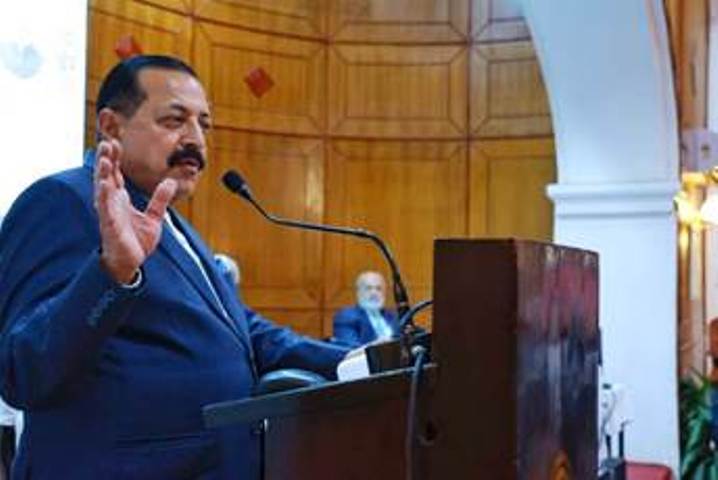Union Minister Dr. Jitendra Singh delivered a powerful keynote address through a video message at the valedictory session of the 27th National Conference on E-Governance, held at the Jio Convention Centre in Mumbai. The conference, themed “Viksit Bharat: Secure and Sustainable E-Service Delivery,” focused on the transformative governance reforms driven by Prime Minister Shri Narendra Modi's leadership.
During the valedictory session, the conference participants unanimously adopted the ‘Mumbai Declaration’, following two days of intensive deliberations.
Dr. Jitendra Singh, who holds multiple portfolios including Science and Technology, Earth Sciences, PMO, Department of Atomic Energy, Department of Space, and Public Grievances and Pensions, highlighted the significant socio-economic upgrades achieved through governance reforms in the last decade. He outlined their impact on four key areas:
Governance Reforms: Emphasizing accountability, transparency, and timely service delivery.
Ease of Living: Simplifying citizens' lives through streamlined processes.
Democratisation of Administrative Processes: Creating a level playing field across all administrative functions.
Change in Mindset: Shifting perspectives among administrators and meeting citizens' aspirations.
Dr. Singh cited the early reform by Prime Minister Modi, who eliminated the practice of document attestation by gazetted officers, replacing it with self-attestation. Another significant change was the removal of interviews for certain government jobs, implemented in January 2016 to prevent discrimination.
The Minister also discussed the progress in pension reforms under the Department of Pensions and Pensioners Welfare, praising the introduction of the 'Digital Life Certificate,' which has simplified the process for elderly citizens. The department has also pioneered the use of face recognition technology and recently introduced a 'Single Unified Pension Form' via a single-window portal.
Dr. Singh emphasized ongoing efforts to streamline family pensions for divorced, separated, unmarried, and widowed daughters, as well as for families of missing and kidnapped personnel.
Reflecting on the past decade, Dr. Singh noted that the digital transition ensured the continuity of administrative functions during the COVID-19 pandemic. He highlighted the importance of grievance redressal, praising CPGRAMS for its near-weekly resolution rate and its planned expansion to states and Union Territories.
The National Conference on E-Governance was lauded by Dr. Singh as a critical platform for collaboration among central and state governments, startups, and other stakeholders. He stressed that true good governance is measured by reaching the remotest corners of the country through effective electronic means.
Dr. Singh also touched on the role of advanced technologies such as AI, data analytics, blockchain, cloud computing, and IoT in enhancing governance. The success of Aadhaar’s biometric system and Bharat Rural Internet connectivity were highlighted as prime examples of effective digital transformation.
Recalling Prime Minister Modi's mantra of the 3E’s—Electronic Governance, Effective Governance, and Environmental Governance—Dr. Singh celebrated the success of the Swachhata Abhiyan, which generated revenue of Rs. 1162 crore from discovered scrap in central government offices.
In conclusion, Dr. Singh announced the government's focus on preparing for India @2047, the centenary of its independence. The Department of Administrative Reforms and Public Grievances (DARPG) is actively working on Vision@2047, focusing on capacity building and enhancement of younger civil servants to better serve the nation.
The second day of the conference featured sessions on Data Governance, AI in Governance, Innovation in Right to Service Acts, and Cybersecurity and Emergency Response Readiness. Shri Sujata Saumik, Chief Secretary of Maharashtra, highlighted the continuous support by DARPG in transforming e-Governance structures in the state administration. Shri V. Srinivas, Secretary of DARPG, and Shri Puneet Yadav, Additional Secretary of DARPG, also expressed gratitude for the leadership and support provided by Prime Minister Modi and Dr. Jitendra Singh in their initiatives.
The conference emphasized the government's commitment to a future where digital governance enhances accessibility, drives sustainable development, and brings the government closer to its people.











